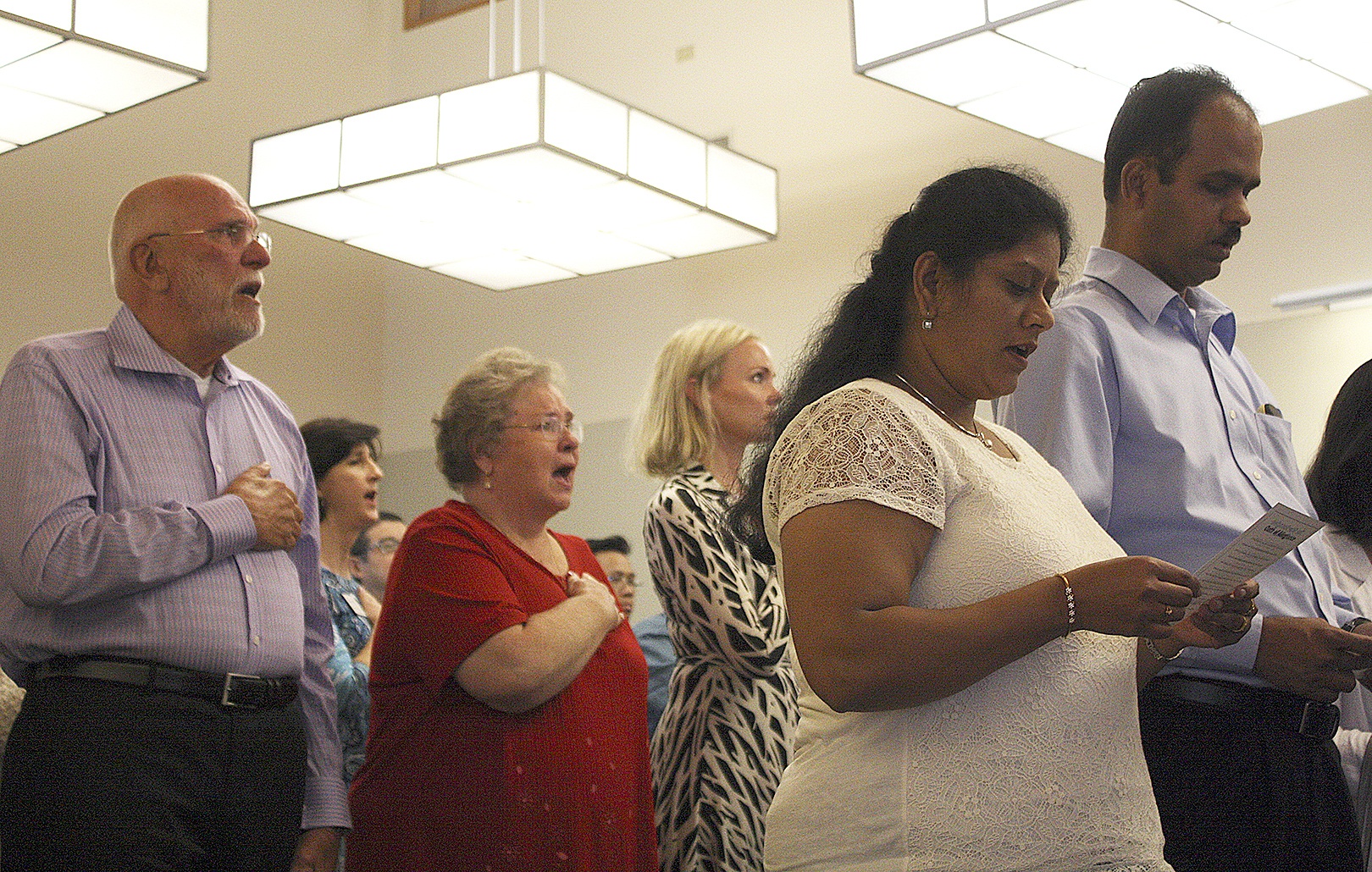Twenty-two people became United States citizens Sept. 6, at a naturalization ceremony at the Bellevue Library.
The library hosted oath-takers from nine countries, Canada, China, Ethiopia, India, Russia, Sweden, Syria, the United Kingdom and Vietnam.
It was the first ceremony the King County Library System has held in Bellevue in Debra Westwood’s 10-year tenure, she said.
“Libraries are such a uniquely democratic institution. It’s immensely gratifying to be here. Many new immigrants come to our libraries to study for tests and get information on becoming a citizen. Hosting them today really feels like we’re closing the loop,” she said.
She could not say why a Bellevue library hadn’t hosted a ceremony in at least a decade. The city of Bellevue has hosted several naturalization ceremonies in the past, most recently in 2013.
Syrian-born Rami Jaamour immigrated to the U.S. 17 years ago to study computer science. Jaamour said he had much better opportunities for his future in the U.S. and decided to stay. Now, he is looking forward to participating in democracy, he said.
He and the other new citizens were congratulated by Bellevue Mayor John Stokes, city council members Lynne Robinson and Vandana Slatter, both Canadian immigrants, and State Representative Tana Senn, whose grandparents were Holocaust survivors and immigrated to Kenya before coming to the U.S.
Many of the participants have been in the U.S. for many years and had waited a long time for the moment they became citizens.
Snoqualmie residents Geeta Dhandapani and Dandhi Balakniskhan have been in the country for 15 years and had been working on becoming citizens for at least five years. Eligible applicants must submit many documents, undergo an interview and often enroll in citizenship preparation classes before taking the oath.
“We had a to wait a long time for today. We’re very happy and proud to be Americans,” Balakniskhan said.
That being said, the pair wants their children to know their roots and culture; they visit family in India every other year.
Neither felt any conflict about renouncing their Indian citizenship. They came to the U.S. for increased opportunities, particularly for their children, Dhandapani said.
“I want to continue volunteering…, but the most important thing is voting, in the national election and also in school issues.”


